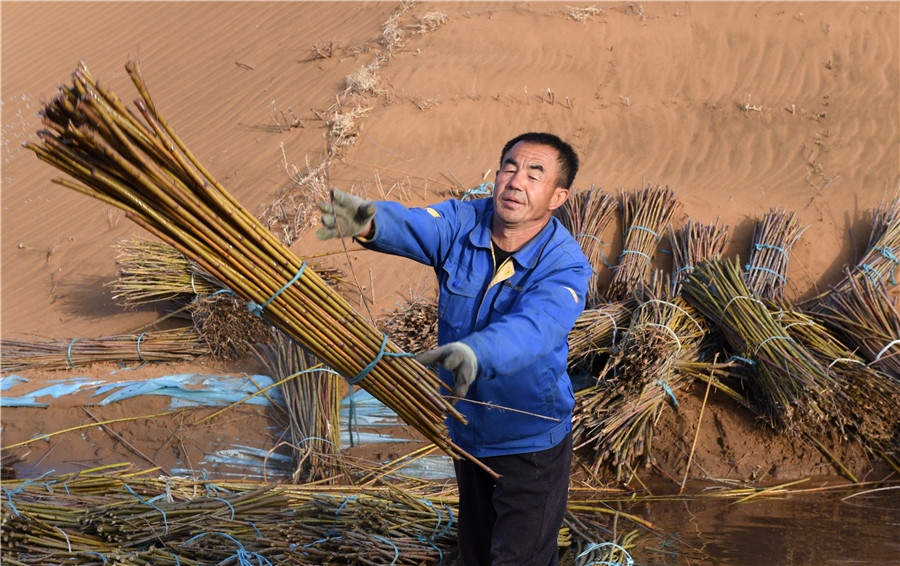Private firms help push back deserts and poverty


What has happened in Kubuqi is emblematic of the private sector's efforts in combating desertification with economic development, which not only improves the environment for residents, but also contributes to the country's poverty relief campaign.
Other private sector companies have also joined the battle against desertification in other parts of Inner Mongolia.
In 1988, when Wang Wenbiao, head of a government-owned salt factory, started to plant trees in the desert, he did so for a simple reason: to prevent sand from burying his factory. He did not expect it would be the beginning of a greening of the desert that has lasted 30 years.
Though the factory only made just over 10 yuan in profit from each metric ton of salt at the time, Wang decided to allocate 5 yuan of that to tree planting.
He soon found, however, that many locals were still plagued by poverty despite the greening of the desert, which made him think about bringing in industries and starting his own business.
"If trees are planted without bringing economic benefits, lush mountains and lucid water will fail to be valuable assets," the 58-year-old entrepreneur said.
While the tree planting continued, Wang - now chairman of Elion Resources Group - started to develop a multi-industry model making use of local conditions.
Medicinal herbs such as licorice - a drought-resistant plant that has a cooling effect on the body and can help improve soil - have been planted, and his company has also helped develop local tourism, making full use of the desert's appeal. Given the abundant sunlight, solar power generation has also been brought in.
- From crested ibises to pandas, China lights conservation path
- Plateau poised for world-class copper hub tag
- Xi calls for winning tough anti-graft battle
- Surging flu cases drive up demand for drug
- Nanchang funds 19 free funeral venues after tragedy
- Massive ice sculpture replicates CNS?Liaoning aircraft carrier





































